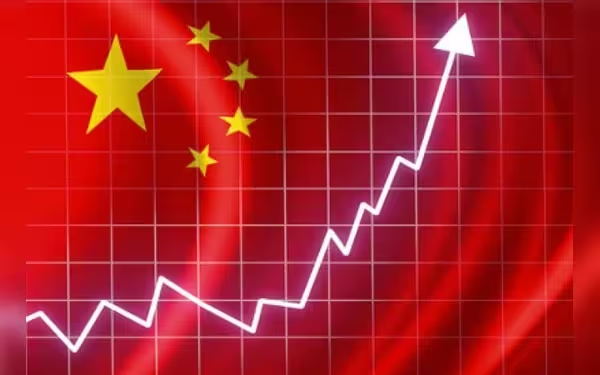Saturday, November 16, 2024 07:40 PM
China Considers $850 Billion Debt to Stimulate Economic Growth
- China plans $850 billion in new debt.
- Focus on infrastructure and social programs.
- Concerns over long-term financial stability.
 Image Credits: tribune.com.pk
Image Credits: tribune.com.pkChina is considering $850 billion in new debt to stimulate its economy amid growing financial challenges.
In a significant move to bolster its economy, China is reportedly considering a staggering $850 billion in new debt. This decision comes as the nation grapples with economic challenges and seeks to stimulate growth. The announcement of this potential fiscal package has sparked intense speculation within financial markets, as investors and analysts alike ponder the implications of such a substantial increase in debt.
As of the end of June 2024, China’s foreign exchange reserves have been a focal point of discussion. These reserves are crucial for maintaining the stability of the Chinese yuan and ensuring that the country can meet its international obligations. The size of the expected fiscal package is not just a number; it represents a strategic effort by the Chinese government to revive its economy, which has shown signs of slowing down in recent months.
The proposed debt could be utilized for various purposes, including infrastructure projects, social programs, and other initiatives aimed at boosting domestic consumption. By investing in these areas, China hopes to create jobs and stimulate economic activity, which is essential for maintaining its position as one of the world’s largest economies.
However, the decision to take on such a large amount of debt is not without its risks. Critics argue that increasing debt levels could lead to long-term financial instability. It raises questions about how the government plans to manage this debt and whether it can generate enough economic growth to justify the borrowing.
While the prospect of $850 billion in new debt may seem daunting, it also presents an opportunity for China to reinvigorate its economy. The success of this initiative will depend on careful planning and execution. As the situation unfolds, it will be crucial for stakeholders to monitor the developments closely, as they will have far-reaching implications not only for China but for the global economy as well.













